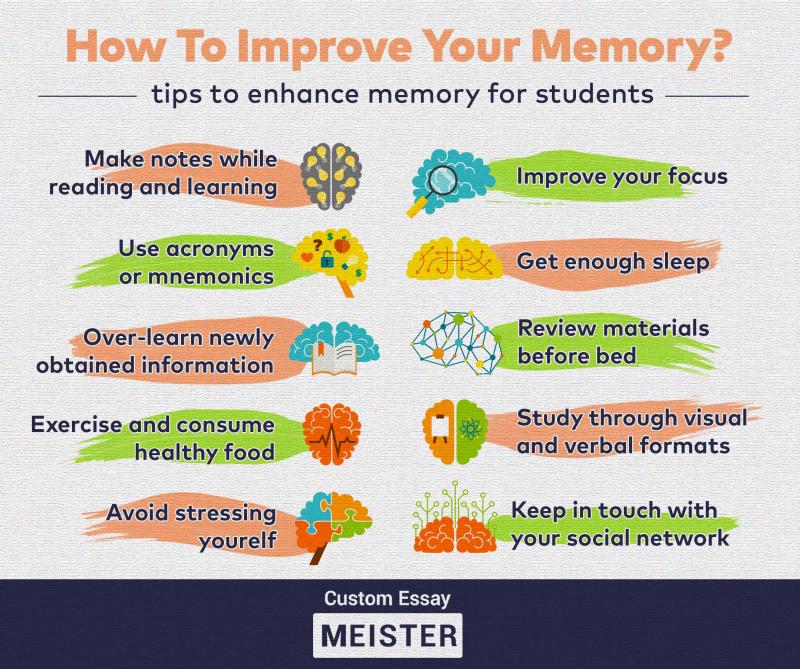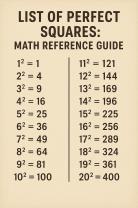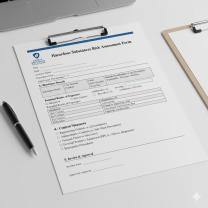How to learn memory techniques?
Learning and mastering memory techniques involves practice, dedication, and a systematic approach. Here is a step-by-step learning guide to help you develop effective memory techniques:
Step 1: Understand Memory Principles
Research Memory Basics:
- Familiarize yourself with how memory works. Understand the difference between short-term and long-term memory, encoding, storage, and retrieval processes.
Explore Memory Systems:
- Learn about different memory systems, including visual memory, spatial memory, auditory memory, and kinesthetic memory. Different techniques may leverage various memory systems.
Step 2: Choose Memory Techniques
Explore Mnemonics:
- Mnemonic devices involve creating associations to remember information. Techniques include acronyms, acrostics, and the method of loci (associating information with specific locations).
Practice Visualization:
- Develop your ability to create vivid mental images. Visualization can enhance memory recall. Practice forming detailed mental images of what you want to remember.
Use Association Techniques:
- Associating new information with familiar concepts or using word associations can make it easier to remember.
Employ Chunking:
- Break down large amounts of information into smaller, manageable chunks. This makes it easier to remember and recall.
Step 3: Develop Memory Strategies
Create Memory Palaces:
- Learn the method of loci or memory palace technique. Associate items to be remembered with specific locations in an imaginary space.
Use the Storytelling Technique:
- Craft a story that incorporates the information you want to remember. The narrative structure can aid memory retention.
Practice Regularly:
- Consistent practice is crucial. Regularly challenge your memory with new information and review previously learned material.
Step 4: Apply Memory Techniques
Apply Techniques to Specific Scenarios:
- Identify areas in your life where improved memory can be beneficial (e.g., studying, work, personal interests). Tailor memory techniques to suit those situations.
Utilize Memory Games and Apps:
- Engage in memory-enhancing games or use apps designed to improve memory skills. These tools can provide structured practice.
Associate with Emotion or Personal Significance:
- Attach emotional or personal significance to the information you want to remember. Emotional connections can strengthen memory.
Step 5: Monitor Progress and Adjust
Reflect and Evaluate:
- Regularly reflect on your memory performance. Identify areas of improvement and celebrate successes.
Adjust Techniques as Needed:
- Be flexible and adjust your memory techniques based on what works best for you. Experiment with different approaches to find the most effective ones.
Continue Learning:
- Stay informed about new memory techniques and research. The field of memory improvement is continually evolving.
Remember that developing effective memory techniques is a gradual process, and improvement comes with consistent practice. Be patient, stay motivated, and adapt your approach based on your individual learning style and preferences.
Enhancing your memory involves a combination of learning effective techniques, consistent practice, and adopting healthy lifestyle habits. Here's a comprehensive guide to improving your memory skills:
1. Effective Memory Techniques
Chunking: Break down large pieces of information into smaller, more manageable chunks. This makes it easier to process and store the information in your memory.
Mnemonic Devices: Create associations or visual cues to link new information to existing knowledge. For example, use acronyms or memory palaces to remember lists or complex concepts.
Elaboration: Expand on new information by connecting it to personal experiences, related facts, or vivid imagery. This deepens the processing of information and enhances retention.
Rehearsal and Spaced Repetition: Actively review and practice recalling newly learned information. Spaced repetition, where you review information at increasing intervals, promotes long-term memory consolidation.
Active Learning: Engage with the information you want to remember. Actively participate in discussions, ask questions, and make connections to make learning more meaningful and memorable.
2. Memory Training Courses and Programs
BrainHQ: A comprehensive online brain training program with various exercises designed to improve memory, attention, and processing speed.
Lumosity: Another popular online brain training platform that offers a variety of cognitive training games and activities to enhance memory and other mental skills.
Memrise: A language learning app that incorporates memory techniques and spaced repetition to effectively teach new vocabulary and phrases.
Elevate: A mobile brain training app that offers a range of cognitive exercises, including memory puzzles and games, to improve various mental abilities.
NeuroNation: A personalized brain training program that adapts to your individual strengths and weaknesses, providing targeted exercises to enhance memory and other cognitive functions.
3. Recommended Resources for Memory Improvement
"Moonwalking with Einstein" by Joshua Foer: This book explores the world of memory champions and provides insights into effective memory techniques.
"Make It Stick: The Science of Successful Learning" by Peter C. Brown, Henry L. Roediger III, and Mark A. McDaniel: This book delves into the science of learning and memory, providing practical strategies for effective learning and retention.
"Memory Craft" by Scott Young: This book outlines a comprehensive memory training system that incorporates various techniques and strategies to enhance memory capacity and performance.
"Peak: The New Science of Expertise" by Anders Ericsson and Robert Pool: This book explores the principles of deliberate practice and how to achieve exceptional mastery in any field, including memory training.
"Memory Rescue: 7 Simple Steps to an Amazing Memory" by Daniel Amen: This book provides a practical guide to improving memory based on the latest research in neuroscience.












